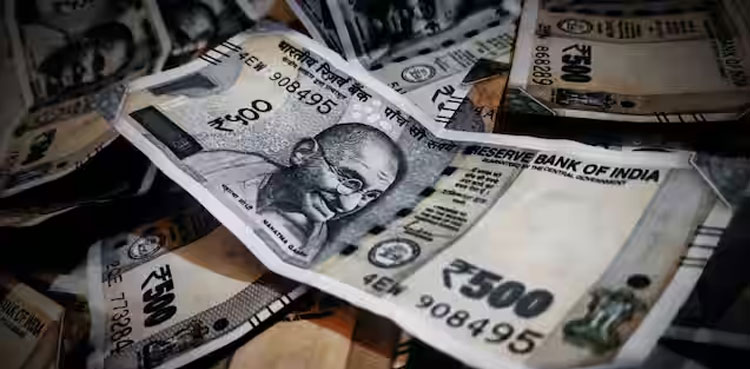
INR: Indian rupee logs worst day in 3 weeks on tariff fears
MUMBAI: The Indian rupee (INR) logged its worst day in three weeks on Tuesday, weighed down by weakness in regional peers, importer hedging and dollar demand related to the expiry of non-deliverable forward contracts.
The Indian rupee ended at 87.21 to the U.S. dollar, down from 86.6950 in the previous session. The domestic unit slipped 0.6% on the day, its biggest single-day fall since February 5.
The Indian rupee pared some losses as the central bank likely intervened to support the currency after it dropped due to demand for the greenback related to derivatives expiry, four traders told Reuters.
“You have dollar demand on the back of maturity of NDF positions, importer hedging and weak Asian cues – all factors stacked up against the rupee, providing very little room for appreciation,” a forex trader at a private sector bank said.
Still, expectations of strong interventions by the Reserve Bank of India have reduced speculative positioning against the rupee, the trader said.
The dollar index recovered to 106.79 after falling to a more than two-month low of 106.35 on Monday.
Asian currencies were mostly lower and risk appetite soured as worries over U.S. tariffs returned.
US President Donald Trump restricted Chinese investments in strategic areas and said Canada and Mexico tariffs will start next week.
Investors had largely hoped that negotiations would forestall the threat after Trump had previously agreed to a 30-day pause on the tariffs.
“The U.S. tariff uncertainty will linger on the rupee and we see volatility to persist,” said Ritesh Bhusari, joint general manager for treasury at South Indian Bank.
“We have a depreciating bias on the rupee, given the local unit is still over-valued, and expect it to fall to 89/dollar over time. The pace of depreciation will depend on the RBI’s interventions and foreign outflows,” Bhusari added.
Foreign investors have sold Indian shares worth nearly $3 billion so far in February.




